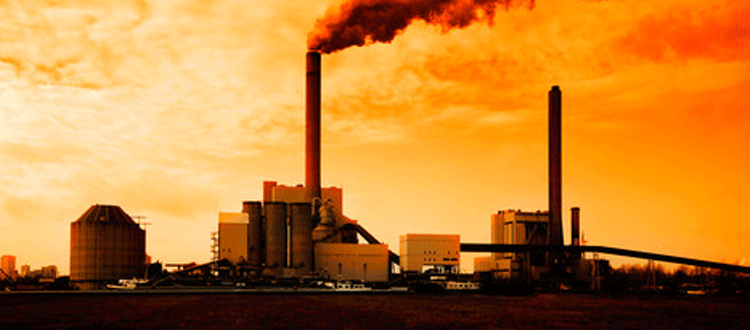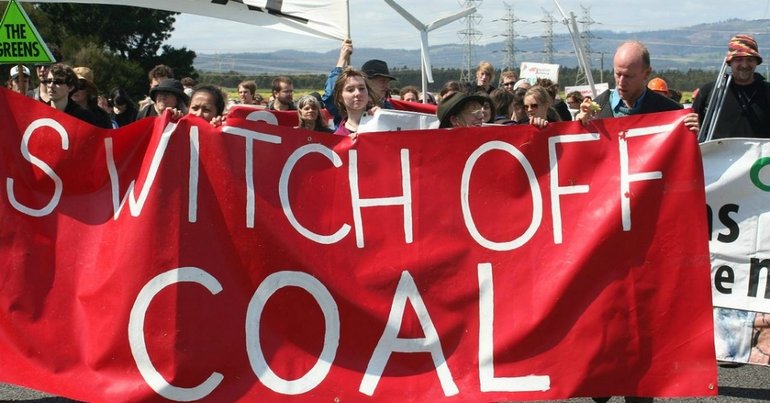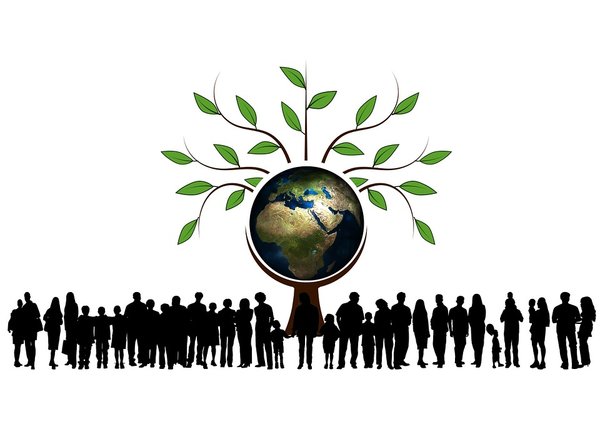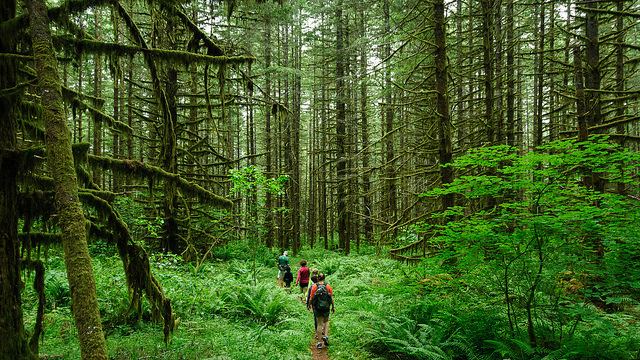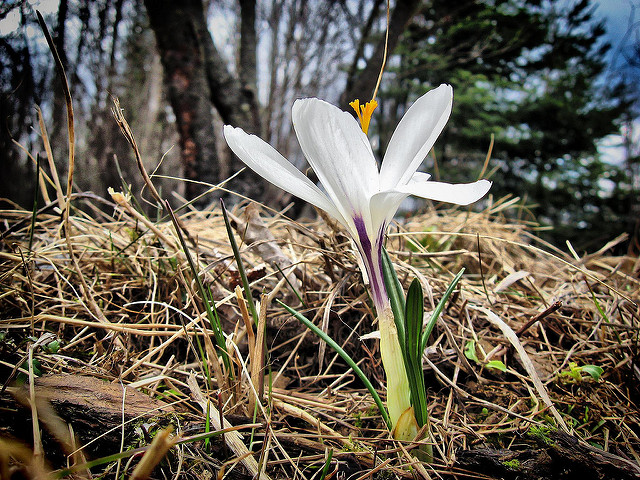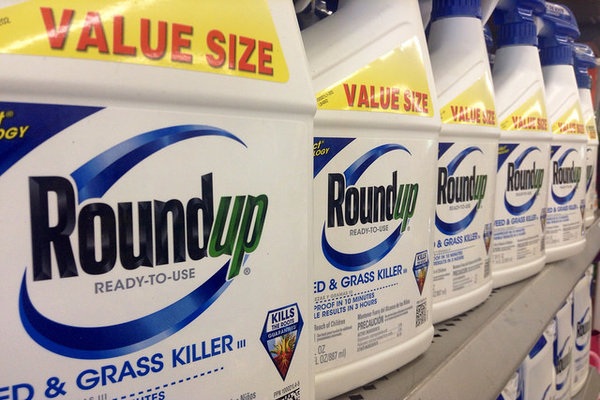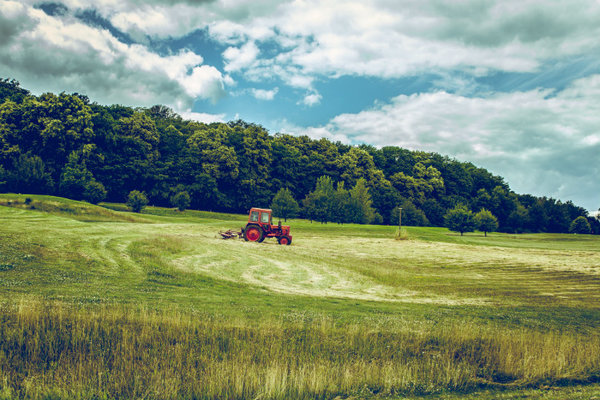I wasn’t born an optimist. At least I don’t think so. Not sure what the balance of nature versus nurture is, but until my mid-20’s, I was one of those annoying people that had a knack for finding the worst-case scenario in every situation. There was a tectonic shift in my world-view not long after I made it through the quarter century mark. And I began what has been another quarter century plus challenge to retrain my neuropathways to seek out the positive in all situations. Most days, the glass is half full; some days my opinion on the status of the water in the glass is neutral; and occasionally, the glass is just dry (heavy sigh) — the plight of human existence? Here are 6 ways to be an environmental optimist despite the sometimes tragic and overwhelming news.
Continue reading... →At the end of March, President Trump released his budget proposal. And what is a budget, other an expression of a statement of values. Think about it: what do you care about, and how is that translated into your daily spending? Where do you choose to spend your money? It appears that science and research in general are under attack within the Trump Administration. This applies to critical health research as well. The largest cuts in the budget proposal are to the Environmental Protection Agency. The proposal to cut 31% of the agency’s funding has troubling implications for numerous programs that ensure people’s ability to live in healthy and vibrant communities. Let’s look at how programs that address toxic chemicals will be impacted.
Continue reading... →The coal industry is in “freefall” worldwide according to the latest annual survey from environmental groups Sierra Club, Greenpeace, and CoalSwarm. According to the survey, new construction and coal plant permits in China and India have sharply dropped off, while aging coal plants were retired across the U.S. and Europe. (The U.S. saw its 250th coal plant retirement on Monday.) The decline of coal has been felt for decades in places like rural West Virginia, and while Trump campaigned on a promise to revive the industry, the survey shows that its decline may be inevitable—while the market share of renewable energy, and potential for sustainable jobs in that sector, continues to rise.
Continue reading... →Intelligent beauties respect the planet. So what’s a person to do when you know there’s more to being gorgeous than the latest hot lipstick hue and the perfect sweep of eye shadow? Make conscious buying choices. When you purchase Ecco Bella products you are honoring yourself and the environment. We, as a company, support regenerative agriculture. What is Regenerative Agriculture? Recognizing that our planet does not offer infinite resources, regenerative agriculture takes on the responsibility of improving the soil and the environment.
Continue reading... →While it may seem obvious that a good hike through a forest or up a mountain can cleanse your mind, body, and soul, science is now discovering that hiking can actually change your brain… for the better! Aside from the almost instant feeling of calm and contentment that accompanies time outdoors, hiking in nature can reduce rumination. Many of us often find ourselves consumed by negative thoughts, which takes us out of the enjoyment of the moment at best and leads us down a path to depression and anxiety at worst. But a recent study published in Proceedings of the National Academy of Sciences found that spending time in nature decreases these obsessive, negative thoughts by a significant margin.
Continue reading... →According to the National Phenology Network (NPN), a biological research organization that works with the US Geological Survey to track the cyclical behavior of plant life across the country, this year has been marked by an unusually warm winter, which has led plants to begin spring rhythms very early. With each new leaf index map the NPN releases, the region of the country that’s experiencing a premature spring has grown including Maryland and Virginia — spring is already here. On the most recent one, released, Monday, that region includes New York.
Continue reading... →Typically we take for granted the safety of cotton products such as gauze, bandages, swabs, pads, wipes — and even feminine products, like tampons and sanitary pads. But a 2015 Argentinian study should give us pause for thought. As it turns out, researchers from the University of La Plata found that a vast majority of these products contain glyphosate, the main ingredient in Monsanto’s wildly popular Roundup herbicide and the same chemical that’s considered a “probable carcinogen” by the World Health Organization. If that’s not enough to get your attention, glyphosate is also associated with IQ loss/intellectual disability, autism, attention-deficit hyperactivity disorder, obesity (both child and adult), diabetes, infertility and cardiovascular disease. Needless to say, this isn’t the kind of chemical you want absorbed by wounds, or worse, through the vagina.
Continue reading... →Last, week, under the cover of a media bliss-out except among Koch Brothers funded right-wing channels, the House of Representatives passed a bill which would effectively repeal future standard setting under every important environmental, public health, consumer protection, labor standards, occupational safety and civil rights law on the books. The bill, called the REINS Act, requires that any future major regulation adopted by an Executive Agency—say a new toxic chemical standard required by the recently enacted Chemical Safety Act, or a new consumer protection rule about some innovative but untested kind of food additive—must be approved by a specific resolution in each House of Congress within 70 days to take effect.
Continue reading... →Most people would say they are good at supporting their friends and family, but why are we so bad at being there for ourselves? Holding space for yourself gives you a place to check your direction, to see who or what is in the driver seat of your life, and to adjust your course when you need to. If you truly want to help others, and make a positive impact on the world, then learning to hold space for yourself, to befriend and love yourself, is the greatest impact you could make on the planet. You can’t hold space for someone else if you can’t be with your own pain and hold space for yourself. If there’s no room for you in your life, there isn’t really any room for others. When you’re kind to yourself you impact the lives of others by being less reactive, more responsive, more available, empathetic, compassionate, kind, present, balanced and at peace.
Continue reading... →In a society that has gotten used to disposing of the last-greatest for the latest and greatest, there is one thing most Americans forget won’t be replaced by the newest, fastest gadget or application. Something as incredible and beautiful as planet Earth. After all, it’s the Earth that provides the food that we eat. What we need to consider is how we produce this food. Sustainable agriculture is the answer to a world that commonly uses pesticides and pollutants to produce the crops that we take for granted. Unfortunately, the price may be too high for the planet to pay.
Continue reading... →
